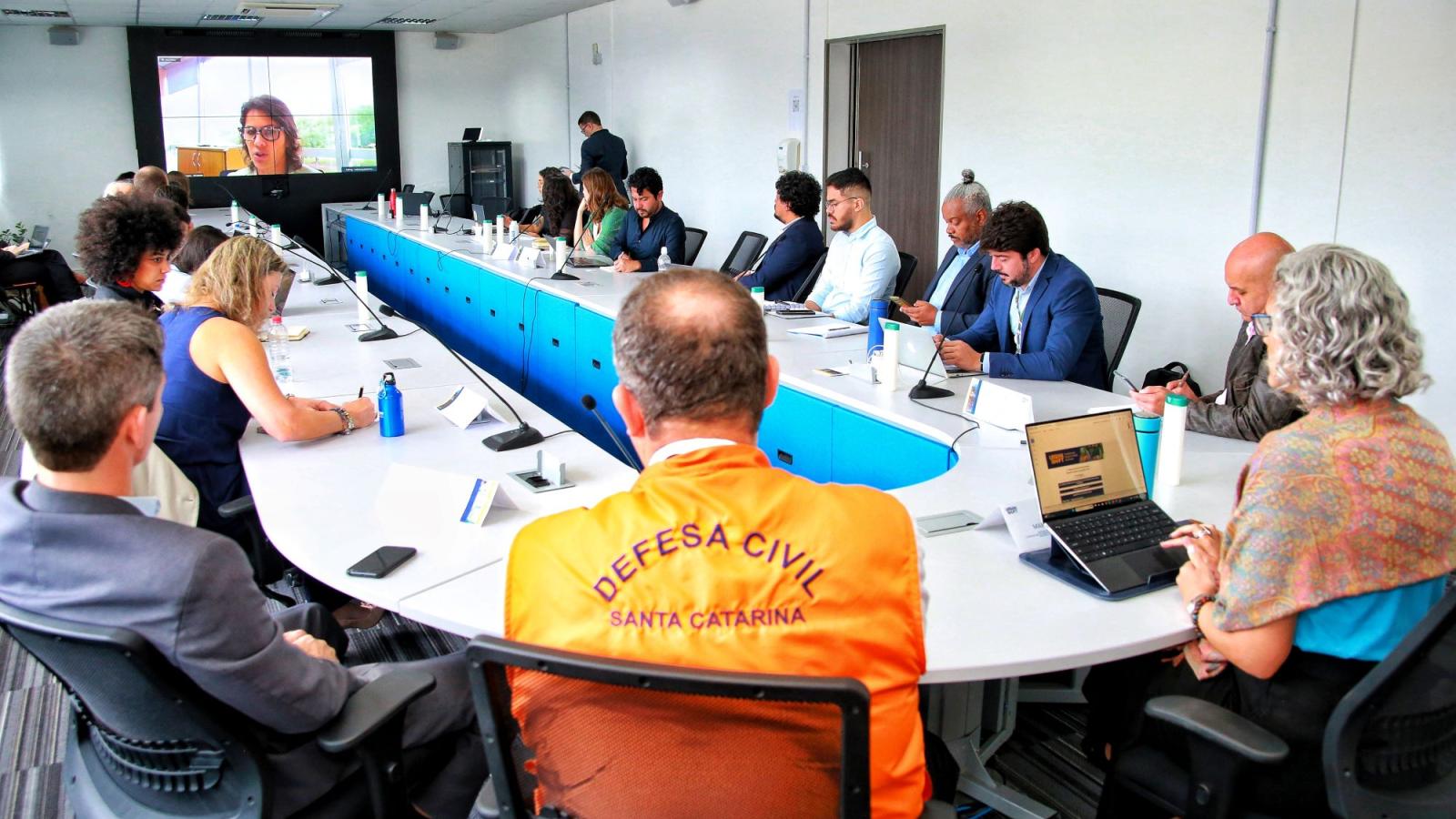Analysis
Integrated Planning and Multilevel Governance: Insights from the UrbanShift National-Local Dialogue in Brazil
The UrbanShift Brazil National-Local Dialogue emphasized the critical role of integrated urban planning and multilevel governance in addressing climate challenges and fostering sustainable development across Brazil’s rapidly growing cities.
This blog was written by Saheel Ahmed, Alyssa Chenault and Viníciius Guimarães from ICLEI - Local Governments for Sustainability.
Urban areas in Brazil are growing rapidly, bringing with them complex challenges such as climate change, social inequality, and resource management. To address these issues, Brazil has embraced a collaborative approach, convening stakeholders from national, state, and municipal levels to chart a sustainable path forward. The first UrbanShift Brazil National-Local Dialogue highlighted the importance of integrated urban planning and multilevel governance as key strategies for creating resilient and sustainable metropolitan regions.
“It is very important to see UNEP, WRI, C40 and ICLEI working together with national governments, under the Urbanshift project (GEF). The National Dialogues in Brazil and Argentina proved to be a very strategic means for multilevel climate governance, and also to promote horizontal collaboration among the cities and metropolitan areas which are involved and engaged in the challenge to tackle and address locally the fight against climate change.” - Rodrigo Perpétuo, Executive Secretary of ICLEI South America
A Collaborative Effort Across Governance Levels
The dialogue brought together representatives from Brazil’s national ministries—such as the Ministry of Science, Technology, and Innovation (MCTI), the Ministry of Cities (MCID), and the Ministry of Environment and Climate Change (MMA)—alongside state officials from Santa Catarina and Pará, and local governments from cities like Belém, Florianópolis, and Teresina. Participants from the Metropolitan Technical Agency of Guadalajara (Mexico), the Belo Horizonte Metropolitan Region Development Agency, UN agencies and NGOs also contributed to the conversation. The event focused on creating a space for open discussion around the governance issues that affect Brazil’s metropolitan regions, emphasizing the need for cooperation across all levels of government.
At the heart of the discussions was the Statute of the Metropolis, a legal framework aimed at fostering better urban planning and governance across Brazil. The participants stressed that greater compliance with this statute is crucial to promoting long-term sustainable development.
Overcoming Obstacles in Brazil
As Brazil strives to lead the fight against climate change, several significant challenges stand in the way:
- Lack of integrated urban planning leads to fragmented, inefficient development.
- Rapid, unplanned growth worsens climate change impacts and strains infrastructure.
- Tensions between municipal and state/federal policies create conflicting strategies.
- Budgetary imbalances limit smaller cities in addressing critical issues like waste management and urban mobility.
Addressing these obstacles requires cohesive governance and strategic urban planning to ensure sustainable progress.
Opportunities for Collaboration and Innovation
Despite these challenges, the dialogue underscored the many opportunities for improving urban governance. The CITinova II project is presented as a cornerstone of Brazil’s integrated metropolitan management efforts, promoting cross-sector and cross-regional cooperation. By facilitating discussions among diverse stakeholders, the project opens doors for peer-to-peer learning, allowing local governments to share their experiences and explore innovative solutions together.
A key highlight of the dialogue was the potential for sustainable tourism and the bioeconomy to play pivotal roles in Brazil’s urban development. The establishment of metropolitan councils was also emphasized to boost city cooperation and streamline governance. International cooperation further reinforced the value of exchanging best practices with global peers, providing insights and validating local efforts in advancing sustainable urban transformation.
Local-Level Impacts
On a local level, the dialogue created an important platform for city representatives to voice their specific challenges and explore tailored solutions. Cities like Belém, Florianópolis, Teresina and Timon were able to discuss issues such as budgetary inequalities, waste management, and transportation challenges. These cities now have a clearer understanding of how they can align their urban planning initiatives with national sustainability goals while adapting solutions to their unique contexts.
The event fostered a greater sense of collaboration by encouraging local governments to exchange strategies for integrated urban development plans, which will be crucial for implementing more effective governance models in the future.
Next Steps: Leveraging the Momentum
With the dialogue wrapped up, the path forward has become evident. Keep building the dialogue, working with stakeholders to implement the multilevel governance roadmap to maintain active collaboration among national, state, and local governments, to advance Brazil’s urban sustainability objectives.
The upcoming second National-Local Dialogue will be a pivotal moment for evaluating progress, refining strategies, and ensuring accountability among stakeholders. By sustaining the momentum and building on the collaboration from the initial dialogue, Brazil is set to achieve notable advancements in sustainable urban development.
Conclusion: A Pathway to Sustainable Urban Transformation
The UrbanShift Brazil National-Local Dialogue shed light on both the challenges and opportunities facing Brazil’s cities. The need for cohesive, multilevel governance is more urgent than ever, particularly in light of rapid urbanization and environmental pressures. However, the dialogue also revealed promising opportunities for cities to collaborate, innovate, and integrate sustainability into their urban planning efforts.
With initiatives like the CITinova II project leading the way, Brazil is creating a roadmap for transformative urban development—one that addresses the complexities of metropolitan governance while seizing opportunities in sectors like sustainable tourism and the bioeconomy. Moving forward, continuous dialogue and cooperation will be key to ensuring that Brazil’s cities not only grow but thrive sustainably.
To learn more, click here [EN or PT] to read the summary of Brazil’s first National-Local Dialog as part of the UrbanShift program. To learn more about UrbanShift in Brazil, click here.
If you have any questions or contributions that could support the planning of the next National-Local Dialogue in Brazil, as part of the UrbanShift program, please reach out to urbanshift@iclei.org.
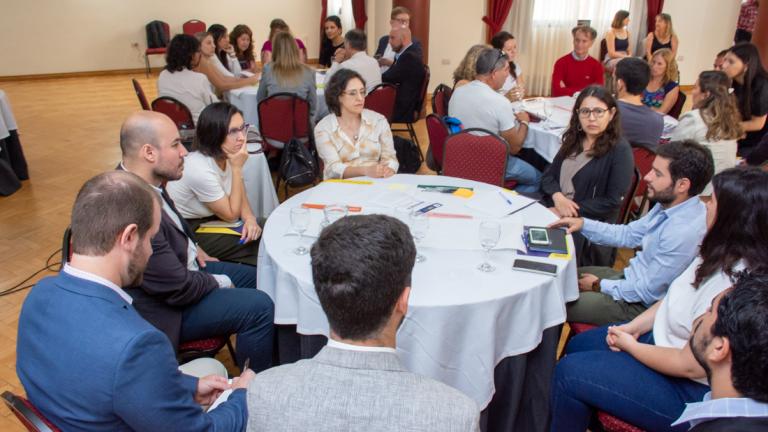
Argentina’s Road to 2030: Collaborative Climate Action
Argentina's first UrbanShift National Local Dialogue emphasized collaborative climate action, uniting national and local governments to promote sustainable urban development, align with 2030 targets, and enhance governance and financing.
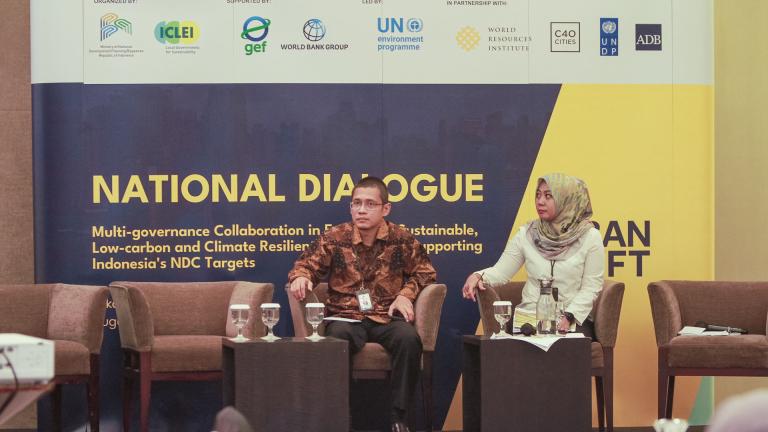
UrbanShift Advances Multilevel Governance Dialogues
These dialogues have taken place across seven UrbanShift countries to advance collaboration and alignment across all levels of government.
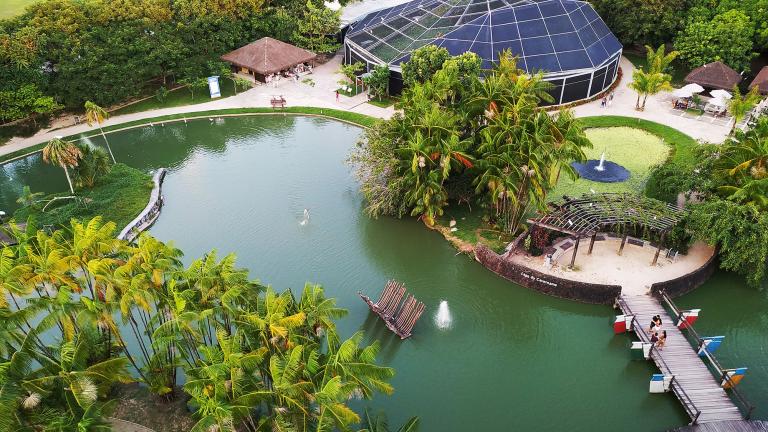
UrbanShift Latin America Forum
Focusing on the theme of financing for green and resilient cities, this Forum offered capacity-building and networking opportunities for cities across Latin America.
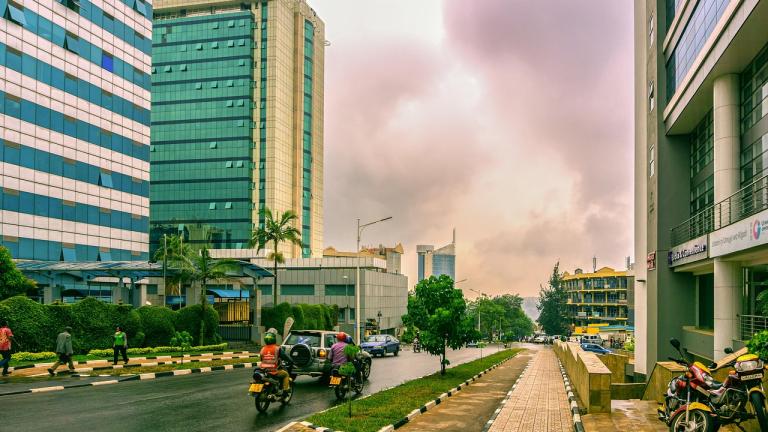
Rwanda Second Multilevel Governance Dialogue - Local Government Consultation on NDC 3.0 Development
This dialogue will strengthen local government involvement in shaping and implementing the country’s NDC 3.0, fostering national-local collaboration for ambitious climate action.
